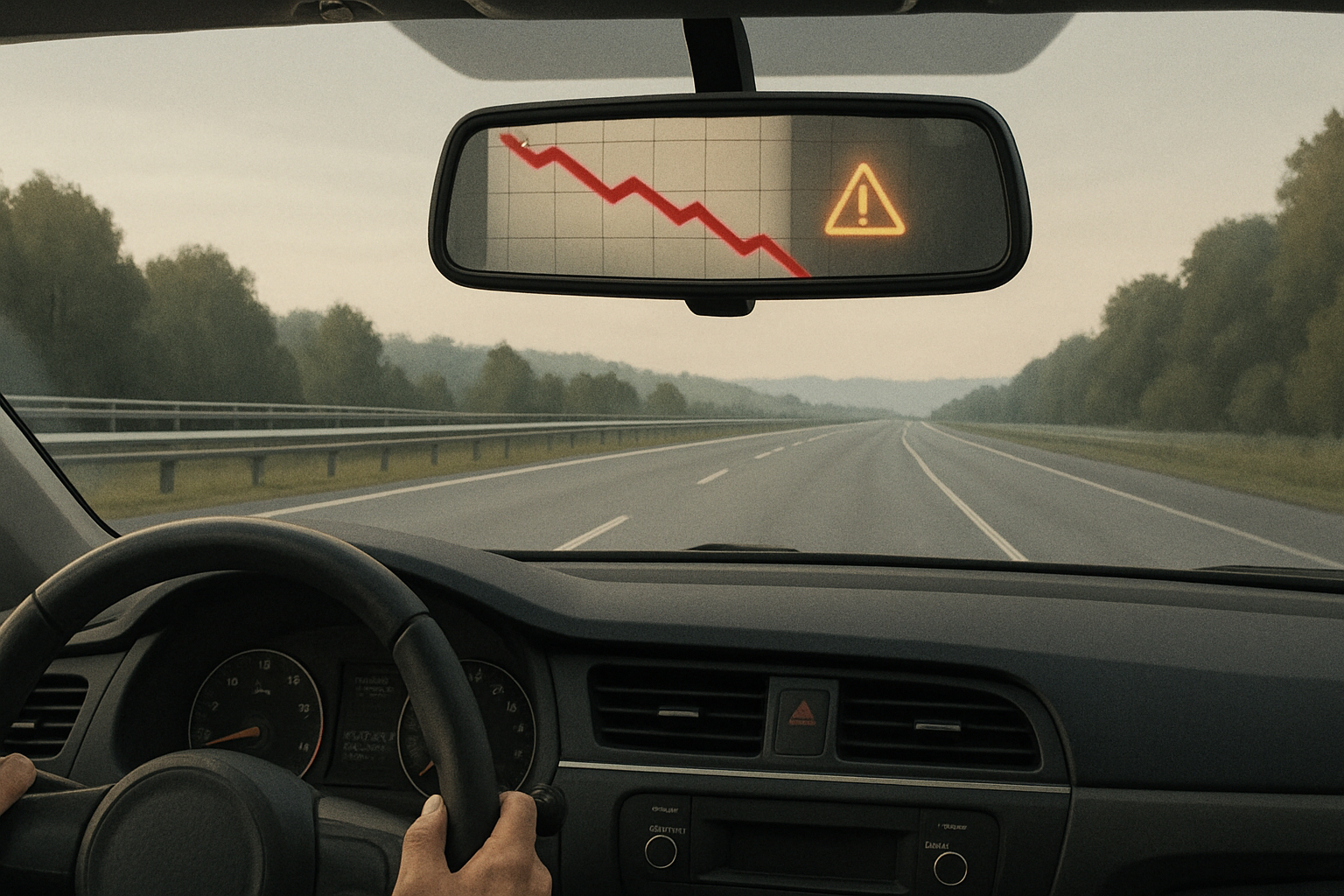The dirty little secret about recessions? We're usually knee-deep in one before anyone makes it official. Like that friend who's always the last to hear about the breakup, economic downturns have this annoying habit of sneaking up on us.
Take a hard look at our recent jobs numbers. They're not just disappointing—they're flashing warning lights. May brought a measly 19,000 jobs. June was even worse with 14,000. And July's initial 73,000 figure? I've covered enough economic cycles to know that number will probably get revised downward when nobody's paying attention anymore.
For context (and this matters), we need roughly 150,000 new jobs each month just to keep pace with population growth. So yeah, technically we're still adding jobs—but it's like bragging that your leaky rowboat hasn't completely sunk yet.
I call this the "rearview recession" problem.
The National Bureau of Economic Research—those academic types who officially date recessions—operate more like historians than journalists. They wait for comprehensive data, revisions, and clear patterns before making their pronouncements. Which means? By the time they declare a recession, your 401(k) has already felt it.
The parallels to late 2007 are downright eerie. Back then, October added 103,000 jobs and November added 124,000—weak numbers that didn't trigger panic. December 2007 dropped to just 18,000 new jobs, looking suspiciously similar to our current trajectory. Yet in that same month, plenty of economists were still debating whether a recession was even coming. (Spoiler alert: We were already in one.)
Look, economic deterioration rarely happens overnight. It's more like the proverbial frog in boiling water—gradual changes that don't seem catastrophic until suddenly they are. First come hiring freezes. Then reduced hours. Then the actual layoffs that make headlines.
That's why our current 4.25% unemployment rate—while technically "low"—isn't as comforting as it appears. Unemployment is what economists call a lagging indicator. It's like using a thermometer after you've already been sick for three days—useful information, but hardly breaking news.
I've been watching recessions get declared retroactively for twenty years now, and there's always this awkward moment where everyone suddenly realizes we've been in economic trouble longer than we thought. Remember that inverted yield curve in 2019 that had everyone prepping for a 2020 recession? We got one alright, just not for the reasons anyone predicted (unless you happened to be oddly prescient about global pandemics).
What's particularly strange about our current situation is the disconnect. Job market weakness is showing up, but consumer spending has remained stubbornly resilient. Corporate earnings haven't collapsed either. It's almost as if different parts of the economy are experiencing different realities—like that weird period when a relationship is basically over but nobody's admitted it yet.
Modern recessions, I've noticed, don't follow predictable patterns anyway. The 2001 downturn barely touched employment but hammered stock portfolios. The 2020 COVID recession was the shortest on record but brutally intense. Perhaps we're writing a new chapter now—the "stealth recession" of 2023-2024, where the economy deteriorates without anyone agreeing it's happening.
If we are indeed months into a recession already (and I suspect we might be), the implications for policy are huge. The Fed might be behind the curve rather than ahead of it. Those fiscal stimulus discussions that seem premature today? They could become urgently necessary tomorrow.
Will economic historians someday point to May 2023 as the beginning of our next recession? I don't know. But I do know that by the time it becomes obvious to everyone, it'll be old news to the economy itself.
In the meantime, maybe we should start planning our "Congratulations on Your Recession" parties. By the time the NBER makes it official, we might already be discussing the recovery.
